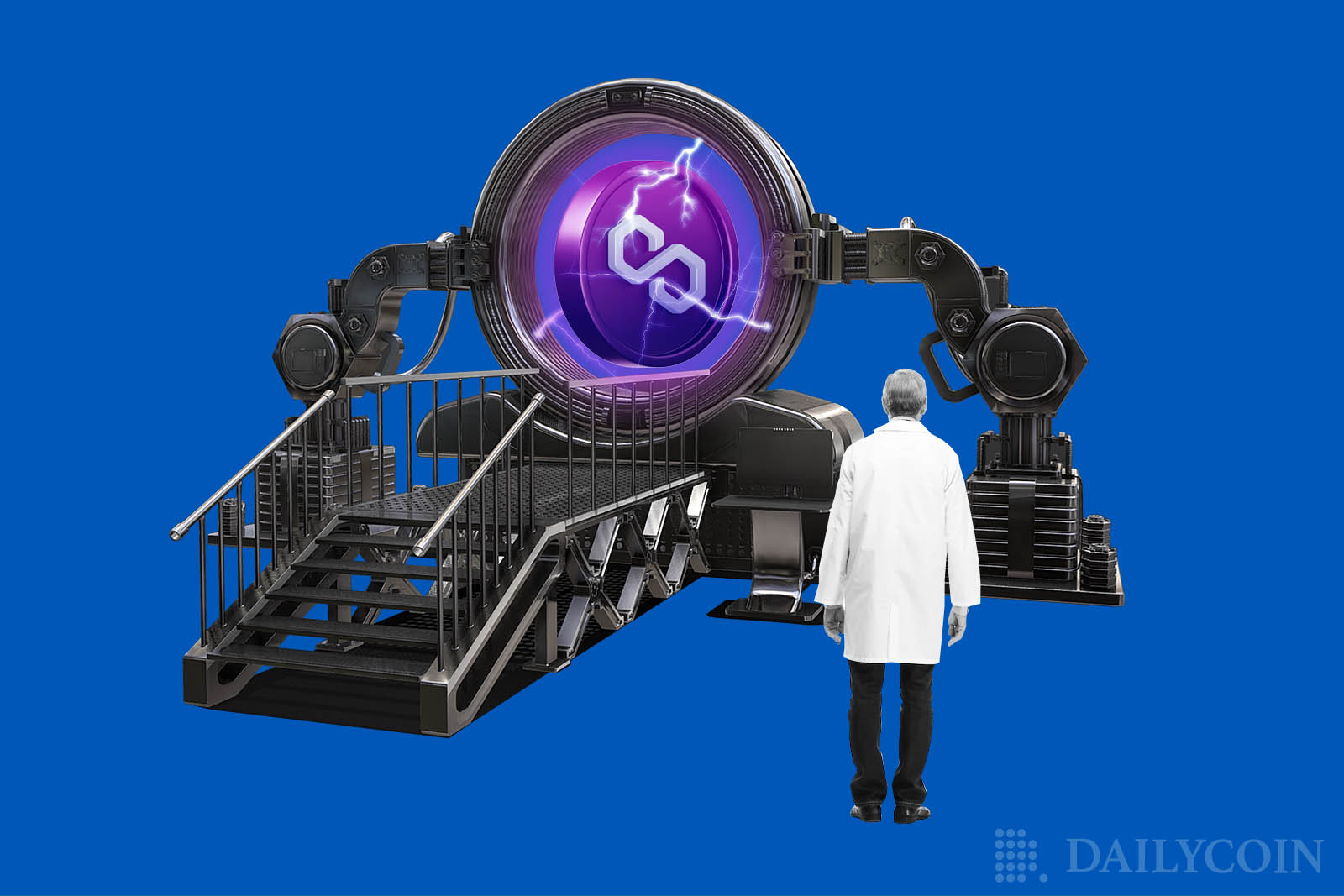
- Polygon has launched the second tesnet for its zkEVM.
- The testnet will be the last one before the mainnet launch.
- The second testnet will have almost all the features the mainnet version is expected to have.
- The features include recursion, something that will allow Polygon to use one zero-knowledge proof to validate other batches of zero-knowledge proofs.
- Polygon gave no timeline on when the mainnet version will launch.
Polygon (MATIC) has launched the second testnet for its zero-knowledge Ethereum Virtual Machine (zkEVM) network, the team behind the protocol announced in a blog post on Wednesday. Polygon said it’s the final testnet before the mainnet launch.
The second testnet will have “most expected features” that the mainnet zkEVM version will also have, including recursion – something that Polygon claims will help to exponentially scale its zkEVM.
In Polygon’s zkEVM, recursion will allow one zero-knowledge validity proof to “validate a batch of other zero-knowledge proofs, each of which can in turn validate multiple transactions.”
Sponsored
“Using recursion, any given zero-knowledge proof can in turn be aggregated and validated by a single, higher-level proof. It’s a bit like an infinite regress of two mirrors facing one another, with profound implications for scaling Ethereum,” Polygon explained.
zkEVM stands for zero-knowledge Ethereum Virtual Machine, a layer 2 scaling solution that aims to use zero-knowledge proofs to validate all of Ethereum’s processes. zkEVMs offer advanced privacy and significantly reduce transaction costs by batching multiple transactions and confirming them with one zero-knowledge proof.
One problem Ethereum developers are facing with regard to zkEVMs is that proof generation time is rather slow. Polygon said it’s aiming to increase proof generation speed by supporting multiple provers in parallel and improving its batch creation processes. Still, Polygon admitted that more work will be required in this area.
Zero-Knowledge Wars Intensify
The race to the first zk-EVM deployed on the Ethereum mainnet has only intensified over the last few months. Polygon has claimed that its first zkEVM testnet is the first such testnet in the world. Meanwhile, Matter Labs, the developer of zkSync, has made claims that its zkEVM is the first one to launch on the mainnet.
Sponsored
While such talks might seem contradictory, it’s been an ongoing theme in the Ethereum zero-knowledge proof community. Both of the developers are aiming to be the first to deliver a fully usable zkEVM product, something that was only a theoretical musing a few years ago.
But Polygon and zkSync aren’t the only developers aiming to ship a zkEVM. Scroll and Taiko have also been working on their own versions of the layer 2 scaling technology. On top of that, Consensys, one of the original Ethereum developers, announced its own zkEVM two weeks ago, joining the already tight race.
While some of the teams are quoting early next year as possible dates for their zkEVM to hit the Ethereum mainnet, it’s unknown whether any of them will succeed, since zkEVMs are notoriously hard to code. Still, the race has been exciting for the Ethereum community to watch.
On the Flipside
- Polygon gave no timeline on how long its second testnet will run and when the mainnet version will launch.
Why You Should Care
Polygon has been developing Ethereum scaling solutions for the past few years. The development of its latest project – zkEVM – seems to be going just fine. Ethereum users should be excited about the possibility of Polygon’s zkEVM hitting the mainnet next year because it will greatly reduce gas costs and improve scalability.
You Might Alos Like:
zkSync Integrates Validity Proofs Ahead of zkEVM’s Mainnet Launch
